Ukraine recap: naval success raises hopes of advantage against Russia this winter.
War in wintertime is especially challenging militarily. Troops have to deal with the risk of frostbite while vehicles can’t always move over muddy or frozen terrain.
It’s no wonder then that wars tend to move much more slowly during the colder months.
Written by Rachael Jolley, The Conversation. This article is the opinion of the author and not necessarily that of the UK Defence Journal. If you would like to submit your own article on this topic or any other, please see our submission guidelines.
Cold weather can also open up opportunities that either side in a conflict can try to exploit. When the Soviet Union invaded Finland in November 1939, temperatures around -40ºC gave the much smaller Finnish force an advantage, forcing significant losses on the Soviets that significantly undermined their military reputation. Being agile, changing tactics, and having the right equipment for the weather are even more vital when the temperature drops.
This winter, Russia is expected to open up attacks on Ukraine’s energy infrastructure, as it attempted to do in 2022, writes Lancester University’s professor of international security Basil Germond.
Russia may find it more difficult this time around to undermine Ukraine’s energy supply, partly because of Ukraine’s successful attacks on its Black Sea fleet. This has pushed the Russian fleet away from its base in Crimea to Novorossiysk, making it further away from Ukrainian targets.
This winter there could be an element of celebration in Kherson, the port city on the Dnipro river. It was freed from Russian occupation last November, but life there is still extremely tough. Rod Thornton, associate professor in international studies at King’s College London, explains how inhabitants live under fire from Russian troops stationed across the river. Most shops and restaurants in the once-vibrant city have closed down, and young people have left to find a life in a place with more prospects. This winter it is unlikely that Ukraine will be able to push the Russian military back from the opposite riverside, so life under fire seems set to continue. At least, for now.
No breakthroughs
Western leaders are slowly coming to the conclusion that there’s not going to be a big breakthrough by Ukraine this winter. While Ukraine’s allies had been hoping to see a significant change caused by Kyiv’s counter offensive this summer, a recent assessment is that this has not been the case, and no great steps forward have been made, especially on land.
In fact, the two sides are pretty much at a stalemate, Stefan Wolff, professor of international security at the University of Birmingham, and Tetyana Malyarenko, professor of international relations at National University Odesa Law Academy, suggest.
A stalemate assumes that neither side can see a clear opportunity to either escalate militarily to victory or have a significant advantage. This is something that Russian president Vladimir Putin would not have predicted when he ordered an invasion across Ukraine in February 2022. But Wolff and Malyarenko detail how that stalemate has arisen, and how it could pave the way for some kind of peace talks, even though Ukraine’s president Volodymyr Zelensky is not yet ready to discuss this as an option.
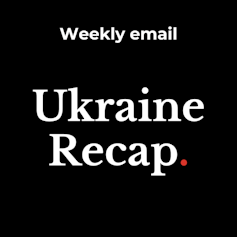
Since Vladimir Putin sent his war machine into Ukraine on February 24 2022, The Conversation has called upon some of the leading experts in international security, geopolitics and military tactics to help our readers understand the big issues. You can also subscribe to their fortnightly recap of expert analysis of the conflict in Ukraine.
Meanwhile, Crimean Tatars are under extreme pressure in their homeland, decades after they faced severe persecution under Soviet leader Joseph Stalin. Gerald Hughes, reader in military history and intelligence studies at Aberystwyth University, takes a look at the evidence that Putin is following in Stalin’s footsteps by attempting to drive the Tatars out of Russian-occupied Crimea. Tatars no longer have the right to commemorate their long exile from their homeland. There are random house searches, and reports of disappearances and killings, he reports.
The war in Ukraine – and the threat of nuclear conflict it has awakened – is one reason why the hands of the Doomsday Clock were set at a mere 90 seconds to the hour at the beginning of 2023 – the closest it has ever been to midnight, writes Thornton in another piece.
The Doomsday Clock is a symbolic device that is designed to warn the world how close it is to catastrophe. The clock was set up by a journal called the Bulletin of Atomic Scientists, established in 1947 by Manhattan Project scientists and engineers who were closely linked to the development of the atomic bomb.
A particular influence on the position of the clock next year will be Russia’s recent decision to pull out of an important cold war-era treaty. The 1990 treaty on conventional armed forces in Europe was intended to use the warming of relations between east and west to minimise the risk of war in Europe. Nothing cheering to report that is likely to push the hands of the clock back to a less worrying position there.
Ukraine Recap is available as a fortnightly email newsletter. Click here to get recaps directly in your inbox.![]()
This article is republished from The Conversation under a Creative Commons license. Read the original article.


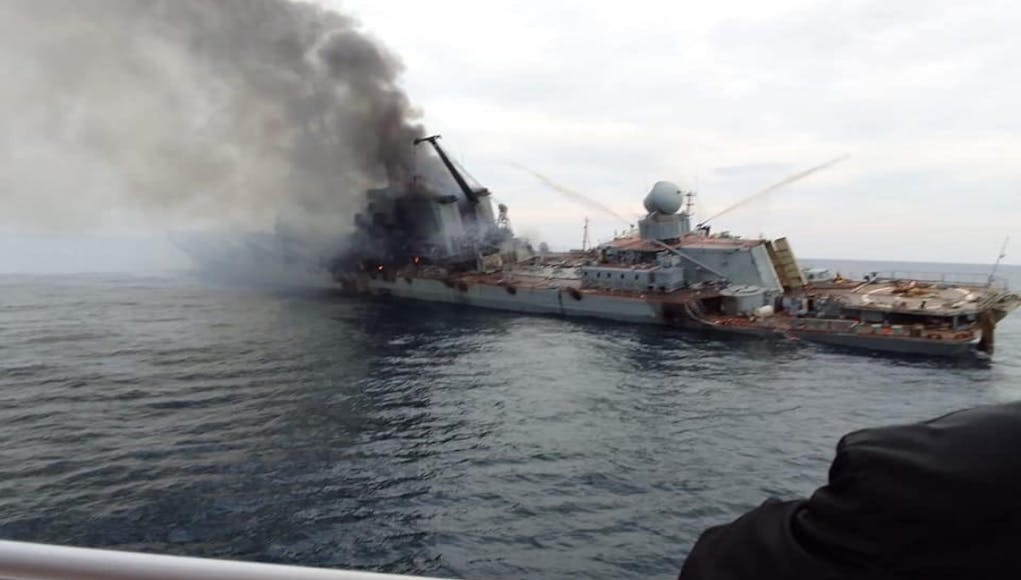

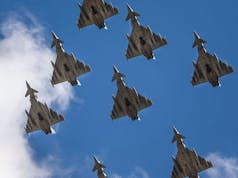
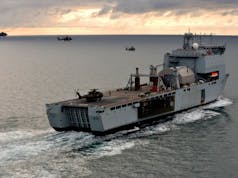
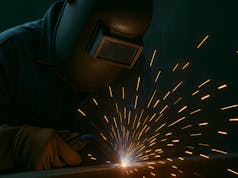

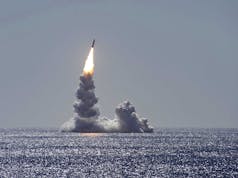

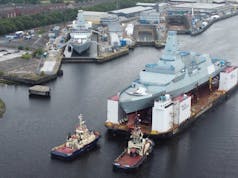



BBC new site reports a double UKr sabotage of the far eastern Russian railway hitting both a bridge & a tunnel. Russia describes it as “terrorism”, so what does that make Rusia’s blamnket bombing of UKr?
That’s a whole new level of deep penetration strike.
https://www.bbc.co.uk/news/world-europe-67593041
You don’t need precision guided missiles or bombs when you have people dedicated to the freedom of their country… as to what Russia is doing to Ukraine at present all I can say is they are the terrorists and the amount of war crimes committed by Russian troops over the past few years in Ukraine including the seizure of Crimea is terrible just so Putin can leave his name in the history books…
AIUI those are routes for military supplies, and are therefore legal military targets.
I would think one message being sent is what could happen to Russia’s infrastructure if they repeat their campaign against Ukrainian civilian targets again this winter.
Just a note in spelling it should be Lancaster University and not Lancester University… Apart from that a well written piece and good luck as always to Ukraine a wonderful place with wonderful people…
Imagine the havoc the Ukrainians could wreak upon the Orcs, if they actually possessed a functioning Navy! 🤔😉
They are not doing too badly. They sunk the flagship (the Moskva), damaged many other ships and forced the move of the bulk of the Russian fleet out of Sevastopol. I think the UKR navy (almost without ships) have had the greatest success compared to their army and air force.
Exactly. 👍
They have shown a new way to fight navel warfare in the littoral. I think the use of small fast attrition based surface and air drones is something everyone needs to take notice of as it may be a step change in how navel warfare in the littoral works…..
I don’t see the relation.
Ukraine needs a significant increase in long range artillery and drones to be able to win on land.
Getting rid of putin is the only way that peace can move forward, innocent people of Ukraine 🇺🇦 and the ordinary people of Russia did not want it either,hope for Ukraine to triumph and humiliation of putin and Russia,
Which poses two questions – how do you get rid of him and who is likely to replace him ?.
Very true,the state of politics in Russia is bad ,pray God that despot is gone ,
I can assure you that there are no likely successors to Vladimir Putin that want to see an end to the Ukraine War.